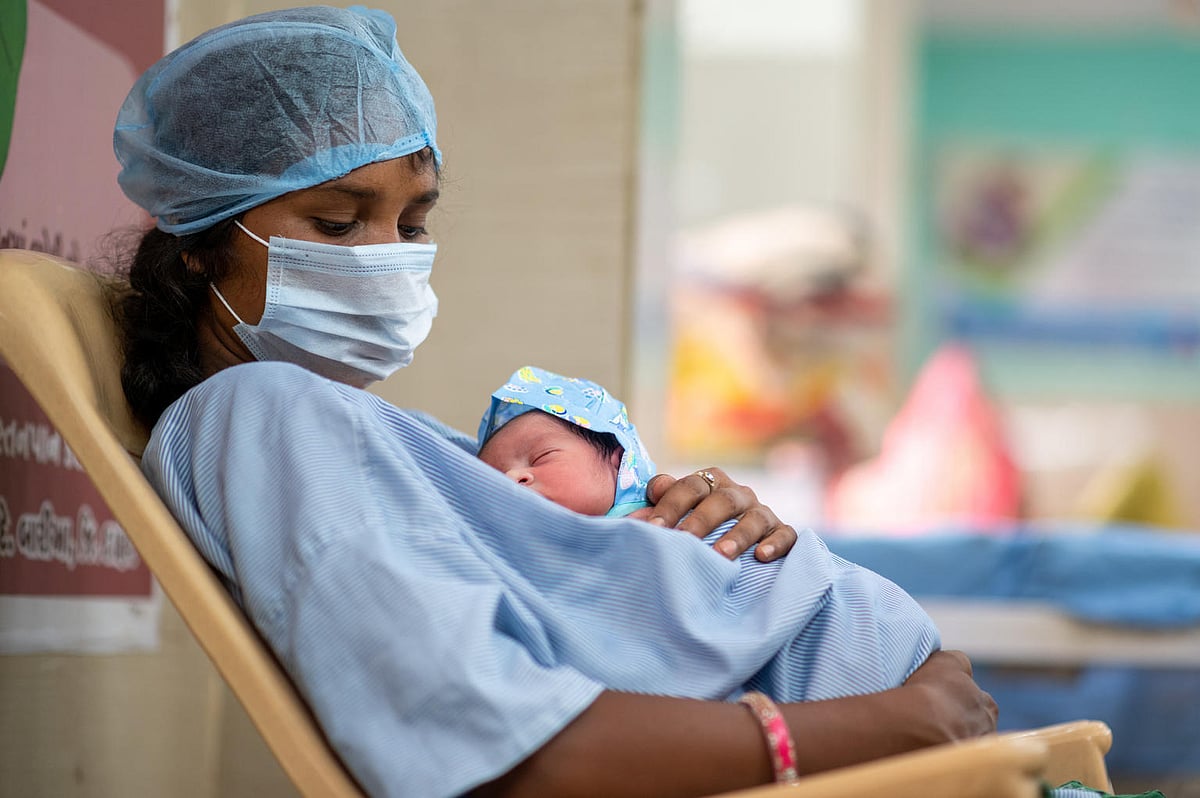It has been sixteen months since the world is in the mid of Covid-19 pandemic. The attention on pandemic response and the measures such as lockdowns and other forms of restrictions have resulted in disruption of health services and both availability and utilization have been affected. On this World Population Day 2021 (WPD 2021), it will be pertinent to examine the impact of pandemic on family planning (FP) services and consider the ways forward.
These challenges in FP services were recognized early on. In April 2020, the United Nations Population Fund (UNFPA) projected that for six months of disruption in FP services, 47 million women in 114 low- and middle- income countries may be deprived of the access to modern contraceptives, resulting in 7 million unintended pregnancies. In May 2020, a reported noted that, in India, in the best case scenario, an estimates 2.46 Crore couples would have been unable to access contraceptives in 2020, resulting in additional 19.4 lakh unintended pregnancies; 500,000 live births; 11.8 lakh abortions and 1,425 maternal deaths. There were other scenarios: The most likely and the worst case, both for India and globally, which had even more dismal projections.
The availability and utilization of FP services was affected by both supply and demand side issues. The grass-root healthcare workers, who have been pivotal in providing FP, were mostly engaged in pandemic response affecting the availability. People were apprehensive of home visits by healthcare workers, fearing they may get an infection. Even those willing to visit healthcare facilities had limited options as several facilities had either shut down or were providing emergency services only.
Though, in early part of the pandemic, in April 2020, Ministry of Health and Family Welfare announced included provision of contraceptives such as condoms, oral contraceptive pills (OCPs), Injectable Contraceptives and Emergency Contraceptives, as essential services to be available through all Public Health Facilities. However, the long-acting methods such as Intra-uterine contraceptive devices (IUCD) and sterilization services were not part of essential services. The fact is that in the lockdowns, these long-term methods could have been a better approach, as these are likely to reduce the repeated contact with health systems and be more convenient for the couples, contrary to the requirements of short-acting methods such as OCPs or condoms.
Several socio-cultural factors also contributed to the gap in the family planning utilisation. The ASHA workers and other grass-root healthcare functionaries, being overburdened with the added responsibilities of Covid-19 containment activities, expectedly reported having chosen the path of least resistance, i.e. would approach homes where acceptance of family planning service was favourable and not time intensive. The migrant labourers returning to their families posed an especially daunting challenge. The economic anxiety coupled with social anxieties resulted in women facing increased intimate partner violence, domestic violence, sexual violence and instances of increased demand for sex. The new sexual behaviours were; however, not accompanied by increased contraceptive usage as ASHA’s could seldom connect with the men of the community, resulting in overall non-inclusion of men in the process. These social scenarios were prevalent before Covid-19, but the measures taken to control pandemic seem to have exacerbated the existing challenges.
There have been a few favourable factors as well. Several couples decided to delay the birth of their first child, and/or preferred to space the birth of subsequent children, till the Covid-19 situation “normalizes”. The pandemic has made it easier for some couples to consult healthcare professionals through teleconsultation.
The reduced availability of FP services due to the Covid-19 pandemic pose a risk to halt or even reverse the gains made on population control, lowering the maternal and infant mortality rates and achieving gender equities, to list a few. This, in turn, has potential to slow down the progress towards achieving the Sustainable Development Goals. As the world continues to be in the middle of the pandemic, and SARS-CoV2 is likely to stay with us, we need to prepare for the time ahead.
The government should consider a few steps. First, all family planning services, including the long-acting methods (IUCDs and implants) and sterilization methods should be deemed as essential health services, during all phases of pandemic. Second, there is a need to focus on delivering the right message regarding provision of contraceptive services at door-step and educating the community to allay the fear of contracting infection from the healthcare worker, while ensuring adherence to the Covid-19 appropriate behaviour. Third, promote greater involvement of the private sector to meet the surge in family planning needs. Fourth, ensure reasonable division of work among ASHAs and other grass-root health functionaries to ensure that the routine health services -they provide- are not disrupted drastically. Fifth, strengthen the involvement of social marketing organisations and private/NGO service delivery organisations by addressing challenges and mitigating the losses incurred. Sixth, intensify the use of digital technology and tele-consultation services to create awareness regarding available family planning services. Seventh, strengthen overall health systems at all levels, to ensure that FP and other health services are continued and are accessible, affordable and available in a timely manner.
World Population Day 2021 is a reminder that the attention from family planning services is not diverted during the pandemic. Family planning is about fulfilling the intended goals of couples in the reproductive age group as well as closely linked to improving mother and child survival and achieving higher life expectancy. On this WPD 2021, the governments and citizens need to recommit to ensure health through the life course.
(Dr Lahariya is a physician- epidemiologist and India’s leading public health expert. He is the co-author of Till We Win: India’s Fight Against The COVID-19 Pandemic. His email address is c.lahariya@gmail.com . Dr Pandya is pursuing a Postgraduate in Community Medicine from Gujarat.)









